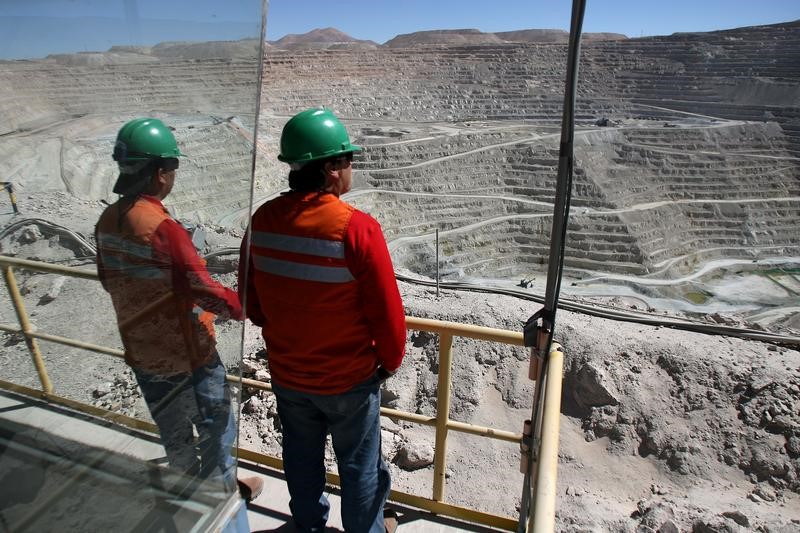(Adds detail on legal provision, comments from worker, analyst)
By Felipe Iturrieta
ANTOFAGASTA, Chile, March 23 (Reuters) - The strike at Chile's Escondida, the world's largest copper mine, is ending after workers decided to invoke a rarely used legal provision that allows them to extend their old contract, the union said on Thursday.
Hours earlier, talks between the two sides failed, and Escondida, which is operated by BHP Billiton BLT.L BHP.AX , said it would attempt to restart production. The workers said they would present their decision to the government on Friday and return to work on Saturday.
A swift restart of Escondida, which produced about 5 percent of the world's copper last year, may bring some relief to the Chilean economy after a strike that has lasted 43 days.
But there was little immediate effect on copper prices CMCU3 , with industry experts saying the two sides will still have to tackle major issues in 18 months, when talks must resume.
The stoppage by the union's 2,500 workers began on Feb. 9 after initial talks with the company to set new wage and benefit contracts failed. Negotiations take place when the former contract expires, typically every three to four years.
The legal provision, Article 369, allows workers to revert to their previous contract for 18 months, after which both sides must try to reach a new agreement. The company is legally obligated to comply.
Returning to their former contract means workers will enjoy existing benefits and working conditions and hold the next talks under an upcoming labor law that strengthens their hand. But they will also lose out on a bonus typically paid when the contract is signed and on any pay raise.
"The money is important," a truck worker who requested anonymity said outside the union meeting, "but the benefits that we have fought for over years are good for us."
The use of Article 369 would be "complex" for Escondida, mine President Marcelo Castillo said earlier on Thursday.
"Having collective talks in 18 months ... would require us to revise our plan, our operating model, our structure in order to allow us to make our mining business viable," he said.
BHP declined to comment further on the union's decision.
Throughout the dispute, the union has said it would not budge on three key points: giving new workers the same benefits as existing workers, maintaining current benefits and keeping shift patterns from becoming more taxing.
Both sides see the uniform benefits issue as particularly important. The new labor law that takes effect in April requires a company to offer the minimum benefits in a previous contract as the negotiating floor.
Industry veteran and analyst Juan Carlos Guajardo said he thought Thursday's outcome of the dispute was "very bad."
"It just prolonged it for a year and half without resolving any major points," he said. " ... This could affect other negotiations."
Escondida is majority-controlled by BHP with minority participation by Rio Tinto RIO.AX RIO.L and Japanese companies including Mitsubishi Corp 8058.T . It produced slightly more than 1 million tonnes of copper in 2016.
